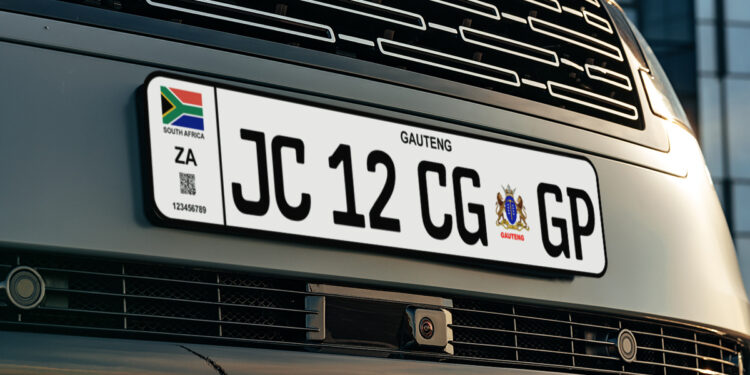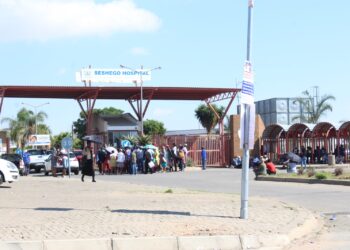By Omphile Maebane
Gauteng motorists will soon be required to switch to new high-tech number plates as the provincial government moves forward with a modernisation project aimed at curbing vehicle-related crime, including number plate cloning and car theft.
The initiative, announced earlier this year by Gauteng Premier Panyaza Lesufi, was initially expected to launch in April 2025, starting with a pilot phase for government vehicles. However, the rollout has since been delayed, with a revised date for the general public yet to be confirmed.
“These number plates will be smart, secure, and tamper-proof,” said Premier Lesufi during a recent media briefing at the Gauteng Provincial Legislature. “We are responding to a growing problem of cloned vehicles, stolen cars, and traffic violations committed by untraceable motorists. With this new system, we aim to restore order and strengthen the fight against crime.”
The redesigned number plates will feature several advanced security elements. Among them is a QR code linked to a cloud-based database storing information about the vehicle and its registered owner. A tamper-proof decal will also be included, designed to self-destruct if removed, preventing illegal transfers or cloning. Visually, the plates will include a red border and red alphanumeric characters, the South African flag, the country code “ZA,” and the Gauteng provincial logo.
Premier Lesufi emphasised that the new system is expected to significantly reduce the number of vehicles used in criminal activities. Law enforcement officers will be able to scan the QR codes on the spot to verify a vehicle’s authenticity, helping to expedite investigations and traffic enforcement.
The Gauteng Department of Roads and Transport has confirmed that once fully implemented, all Gauteng motorists will be required to replace their existing plates when renewing vehicle licence discs. Vehicles from other provinces that remain in Gauteng for more than 30 days will also need to comply with the new regulations.
However, the rollout has sparked concern among civil society organisations. The Organisation Undoing Tax Abuse (Outa) has called for greater transparency regarding the costs involved, particularly for low-income motorists and fleet operators.
“There is no clear indication yet of how much motorists will be expected to pay,” said Outa spokesperson Wayne Duvenage. “We support efforts to fight crime, but the public cannot be burdened with high costs due to poor planning or lack of consultation.”
Privacy advocates and legal experts have also raised questions about data protection and cybersecurity. Critics argue that while the QR code system may improve traceability, it could expose sensitive information if not properly safeguarded.
Members of the public have expressed mixed reactions. Tumi Mokoena, an Uber driver based in Johannesburg, said the initiative is promising but affordability remains a key concern. “If it’s going to cost hundreds of rands, many of us won’t manage. I support stopping criminals, but government must also support us with clear information and flexible payment options.”
The Gauteng Department of Roads and Transport has stated that public consultations are currently underway. Residents will have the opportunity to provide feedback and raise concerns before the new system is fully implemented.
Motorists are encouraged to ensure that their details are up to date on the National Traffic Information System (NaTIS) and to follow official communication channels for updates on the process.
While the high-tech number plates offer the promise of enhanced vehicle identification and crime prevention, their success will depend on effective implementation, data security, affordability, and public trust.
















